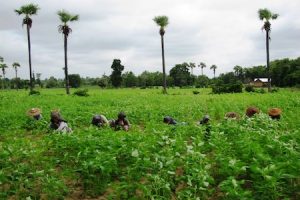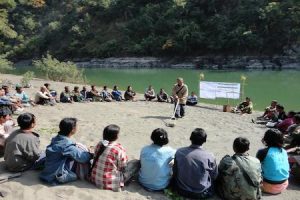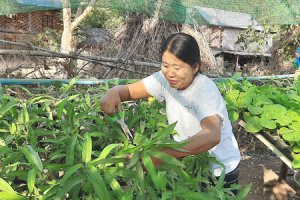Development of rural areas is one of the priorities outlined by the Myanmar Sustainable Development Plan (MSDP 2018-2030) to ensure the social inclusion of vulnerable groups and minorities, the modernization of the economy and sustainable peace in the country. Over 70% of Myanmar’s total population lives in rural areas, and of these, 50% live below the poverty line.
Therefore, one of the aims of the cooperation activities carried out by AICS Yangon is to contribute to improving the living conditions of the rural population by creating and ensuring access to basic infrastructure and services, such as education, health, transportation and electricity. As Myanmar ranks at the bottom of electrification rates in the region, the Italian Cooperation supports access to affordable, reliable, sustainable and modern energy in rural Myanmar. The main goal is to unlock the economic potential of target areas through enhanced community infrastructure and improved access to services.
The intervention strategy encompasses support to the main national programs aimed at the development of rural communities:
- The Contribution to the National Community Driven Development Project, through a € 20 million concessional loan topped up with an additional US $ 3.16 million (2.9 Million Euro) from debt relief operations. The initiative builds community infrastructure such as roads, schools or public lighting systems, and are based on community development plans. Since communities administrate the funds for the implementation of these activities, this also provides an opportunity to strengthen their management skills.
- The Contribution to the National Electrification Project, which intends to provide access to electricity to rural communities through the supply of Solar Home Systems or the creation of mini-grids powered by renewable sources. The project is funded through a concessional loan of € 30 million. The project is funded through a concessional loan of € 30 million.
The Italian participation in these nationwide programs is also thought of as a mechanism to upscale Government interventions in remote and vulnerable geographic areas which still lack funding. In particular, the major interventions of the Italian Cooperation focus on Chin State and neighbouring areas such as the State of Rakhine and Magway and Sagaing Regions.
Beyond bilateral cooperation, AICS funds projects carried out by Italian NGOs and other Italian bodies in support of the economic and social development of rural Myanmar. These projects are mainly focused on sustainable agriculture, aquaculture practices and food security with the aim of improving the livelihoods of rural communities and strengthening their resilience to climate change, a significant challenge in Myanmar.



